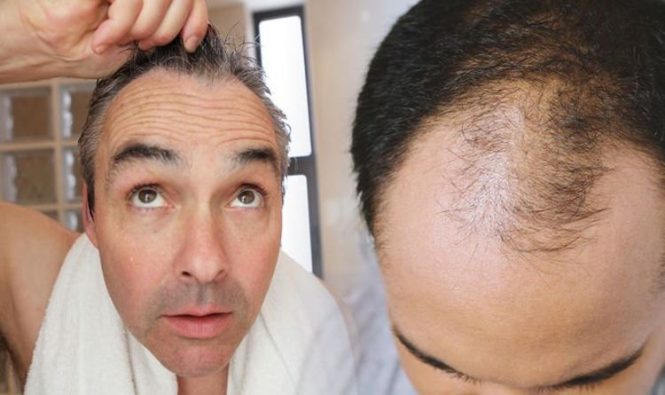

Hair washing, a seemingly simple act, can have a profound impact on your hair health and even hair loss. How often should you wash your hair to keep it healthy and prevent issues? This article delves into the science behind hair washing frequency, examining the impact on hair health, scalp issues, and hair loss. We’ll explore different hair types and scalp conditions to offer tailored advice, empowering you to find the optimal hair washing routine. We will cover the ideal frequency, plus how to choose the right products and techniques to keep your hair looking and feeling its best. This detailed guide will equip you with the knowledge to design your own personalized hair care regimen that promotes hair health and minimizes hair loss.
Understanding Hair Loss and the Role of Washing
Hair Loss: A Common Concern
Hair loss affects millions worldwide, and for many, the frequency of hair washing often plays a key role in contributing to the problem or, conversely, alleviating concerns. The connection between hair washing and hair loss is multifaceted, making proper understanding crucial in developing a healthy hair care routine. This chapter will delve deeper into the factors that influence the link, providing you with valuable insights into the science of hair care.
The Impact of Washing Frequency
The frequency at which you wash your hair directly impacts your scalp and hair’s condition. Washing too frequently can strip natural oils, leading to dryness, breakage, and potential hair loss. On the other hand, washing too infrequently can promote buildup of oils and bacteria, potentially leading to an irritated scalp and other problems. Finding that balance is key to achieving optimal hair health and preventing hair loss. An in-depth look at each scenario, from very frequent to infrequent washing, is essential to personalizing your approach to maintaining healthy hair.
Defining the Ideal Washing Frequency
The optimal frequency of washing is highly individual, determined by your hair type, scalp type, and lifestyle. This article will explore how understanding these personal factors is key to determining how often you need to wash your hair. The proper approach allows you to tailor your washing routine to promote your scalp’s needs, thus preventing hair loss.
Different Hair Types and Washing Needs
Understanding Your Hair Type
Different hair types react differently to the frequency of washing. People with oily hair often need to wash more frequently, while those with dry hair can often go longer between washes. Understanding the characteristics of your hair type is critical for determining your washing frequency. This section will delve into these factors and discuss their importance.
Oily Hair: Washing Strategies
Oily hair tends to produce more sebum, the natural oil that keeps your hair hydrated. Washing oily hair too infrequently can lead to a greasy buildup, which in turn can damage the scalp and lead to hair loss. This chapter will detail techniques to mitigate this effect.
Dry Hair: Washing Less Frequently
People with dry hair often produce less sebum, resulting in dryness and frizz. Washing dry hair too frequently can exacerbate these issues, leading to breakage and potential hair loss. Washing less frequently can mitigate this effect and promote healthier hair.
Factors Influencing Washing Frequency
Washing your hair depends on daily activities, including exposure to the sun or environmental elements. This consideration may necessitate adjustments to your ideal hair washing routine.
The Role of Products and Techniques
Choosing the Right Shampoo
The shampoo you use plays a significant role in hair health. Harsh sulfates can strip natural oils, causing dryness and damage. Opting for a moisturizing shampoo and conditioner can help to maintain your hair’s health and moisture content, and consequently minimize hair loss concerns.
Washing Techniques for Optimal Results
The way you wash your hair can affect its health. Use gentle, circular motions and avoid scrubbing your scalp excessively. Follow proper shampooing and conditioning techniques to preserve your hair’s moisture and health.
Avoiding Over-Washing
The habit of over-washing can damage your hair and scalp. Excessive washing can lead to the loss of natural oils, which can lead to dryness, breakage, and potential hair loss. Reducing over-washing is an important step in maintaining healthy hair.
Avoiding Harsh Chemicals
Some chemical components found in shampoos and other hair care products may be harmful to your hair. These can lead to breakage and hair loss. Opting for a sulfate-free shampoo and conditioner can help to protect your hair’s health and minimize potential damage.
Scalp Health and its Relation to Hair Washing
Scalp Conditions and Their Impact
Scalp conditions can drastically impact your hair washing routine. Conditions like dandruff, psoriasis, or eczema can require more frequent washing or specialized products. The impact of such conditions on hair loss warrants consideration.
Recognizing Scalp Irritation
Signs of scalp irritation, such as redness, itching, or flaking, can be indicators of a problem requiring specialized care. Ignoring these signs could exacerbate the issue, contributing to hair loss. Identifying the issue promptly is crucial.
Using Gentle Products for a Sensitive Scalp
When dealing with a sensitive scalp, using gentle products is paramount. Harsh chemicals can further irritate the scalp, hindering hair health and possibly causing hair loss. Selecting the right hair care products is essential.
Consulting Professionals for Diagnosis and Treatment
If scalp conditions persist, or if hair loss concerns arise, consulting a dermatologist or trichologist can provide a proper diagnosis and tailored treatment plan to prevent hair loss and ensure healthy scalp and hair.
Maintaining a Healthy Hair Care Routine
A Personalized Approach
The best way to maintain a healthy hair care routine is to personalize it. Observing how your hair reacts to different frequencies of washing is key. Tailoring your routine to specific needs allows for effective solutions tailored to your hair type and scalp health.
Combining Washing with Healthy Habits
A healthy lifestyle contributes to healthy hair. Ensuring proper nutrition and adequate hydration promotes scalp and hair health, contributing to a comprehensive approach. Daily habits and overall health have an influence on hair health.
Addressing Hair Loss Concerns
Regularly assessing the health of your hair and scalp is paramount. If hair loss concerns arise, consult a trichologist or dermatologist for a diagnosis and personalized treatment plan. Proactive care is vital for preventing hair loss and maintaining healthy hair and scalp.
The Importance of Regular Checkups
Routine checkups are important, especially if hair loss is noticed. Maintaining a healthy lifestyle and seeking professional help when needed are part of a healthy approach.
[
{“question”: “What is the optimal hair washing frequency for my hair type?”, “answer”: “There’s no single answer to the ideal washing frequency. Your hair type, scalp condition, and lifestyle are key factors. Oily hair typically requires more frequent washing than dry hair. Experiment with different washing schedules and observe how your hair responds. Consult a professional if you have specific concerns or scalp conditions.”},
{“question”: “How can I determine if I’m over-washing my hair?”, “answer”: “Over-washing can lead to dryness, breakage, and potential damage. If your hair feels excessively dry or brittle, you might be over-washing. Pay attention to your scalp and hair condition, ensuring it is not overly dry or brittle. Observing your scalp’s reaction and consulting a professional if concerns arise is important.”},
{“question”: “Are there any specific shampoos or hair products that could help prevent hair loss?”, “answer”: “While there’s no single shampoo guaranteed to prevent hair loss, choosing products tailored to your hair type and scalp condition is helpful. Products that focus on moisturizing and scalp health, avoiding harsh sulfates, can help maintain hair health. However, consulting a professional about suitable shampoos or hair products is recommended for comprehensive solutions if you experience hair loss concerns.”},
{“question”: “What lifestyle choices affect hair health and washing frequency?”, “answer”: “A healthy diet, stress management, and proper hydration contribute to overall health, and thus hair health. If you’re experiencing significant stress, make sure you take care of your body. Adequate hydration and a balanced diet can have a profound impact on your hair’s health. Observing your lifestyle and any notable changes can contribute to a balanced approach to hair health.”}
]
In conclusion, the frequency of hair washing is a deeply personal matter, influenced by factors like hair type, scalp health, and individual preferences. Following a personalized routine, observing how your hair and scalp react, and consulting a professional if concerns arise are key to a healthy scalp and luscious locks. To dive deeper into this topic and discover a regimen tailored to your needs, we invite you to explore the recommended hair washing frequency for your hair type and learn more about the impact of washing on your hair’s overall health.